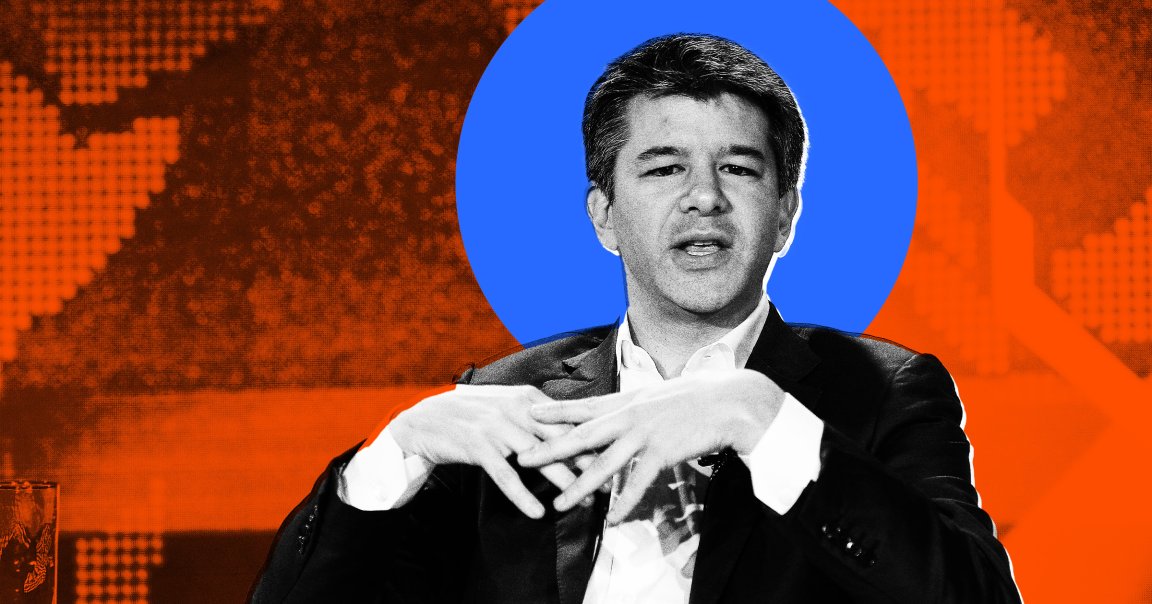
It sounds like the co-founder and former CEO of Uber has had a big gulp of the AI Kool-aid — and then some.
On a recent episode of the All-In podcast, Travis Kalanick, who resigned from the ride-hailing company in disgrace in 2017, spoke rapturously about his experience using chatbots like ChatGPT and Grok. That’s when he revealed his sincere conviction that he, a mere college dropout, was on the verge of achieving a breakthrough in physics just by probing the AI models.
“I’ll go down this thread with GPT or Grok and I’ll start to get to the edge of what’s known in quantum physics and then I’m doing the equivalent of vibe coding, except it’s vibe physics,” Kalanick said, as spotlighted by Gizmodo.
“And we’re approaching what’s known,” he enthused. “And I’m trying to poke and see if there’s breakthroughs to be had. And I’ve gotten pretty damn close to some interesting breakthroughs just doing that.”
Kalanick appeared to have a special affinity for Elon Musk’s Grok, which was embroiled in controversy earlier this month after making posts calling itself “MechaHitler,” praising the Nazi leader, and making a series of outrageously racist and antisemitic statements.
At no point did the former Uber boss even mention these fresh stains on Grok’s record — he was too busy pontificating over the idea of actual scientists getting their hands on the AI.
“I pinged Elon on at some point. I’m just like, dude, if I’m doing this and I’m super amateur hour physics enthusiast,” Kalanick said, per Giz, “what about all those PhD students and postdocs that are super legit using this tool?”
He did not leave us hanging in suspense.
“Grok 4 could be this place where breakthroughs are actually happening!” Kalanick said. “New breakthroughs!”
Kalanick appears to be parroting the spirit of the claims made by Grok’s creator, Musk. Upon the release of Grok 4 last week — the “smartest AI in the world” — Musk promised that Grok would not only discover “new technologies” within the next few years, but “new physics.” Incredibly, this was only a minor escalation in his original promise that Grok will be a “maximum truth-seeking” AI that will unlock the “true nature of the universe.”
So far, neither Grok nor any other large language model has proved capable of unearthing the secrets of spacetime, or what’s behind a black hole’s singularity, or anything else particularly novel. Even the most advanced LLMs are marred by frequent episodes of inventing facts out of thin air, something the industry likes to euphemistically call “hallucinations.” In Grok’s case, it remains remarkably prone to declaring itself an incarnation of Adolf Hitler, being racist, or seemingly believing it’s Elon Musk himself.
To his credit, Kalanick does inject some mild criticism for LLMs into his spiel, saying they’re too “wedded to what is known” and — in an apparent contradiction — need to be double-checked. But he framed this as an issue that could be overcome with tenacious prompting, instead of reckoning with what some believe are the technology’s fundamental shortcomings.
In a remark that sums up his credulous zeal, Kalanick laid out the one simple trick the AI industry should do to supercharge science, which is: being good at science.
“If you have an LLM or foundational model of some kind that is the best in the world at the scientific method? Game the eff over,” Kalanick said. “You just light up more GPUs and you just got like a thousand more PhD students working for you.”
Easy, right?
More on AI: The Pentagon Is Pumping $200 Million Into Elon Musk’s AI That Just Had a Nazi Meltdown